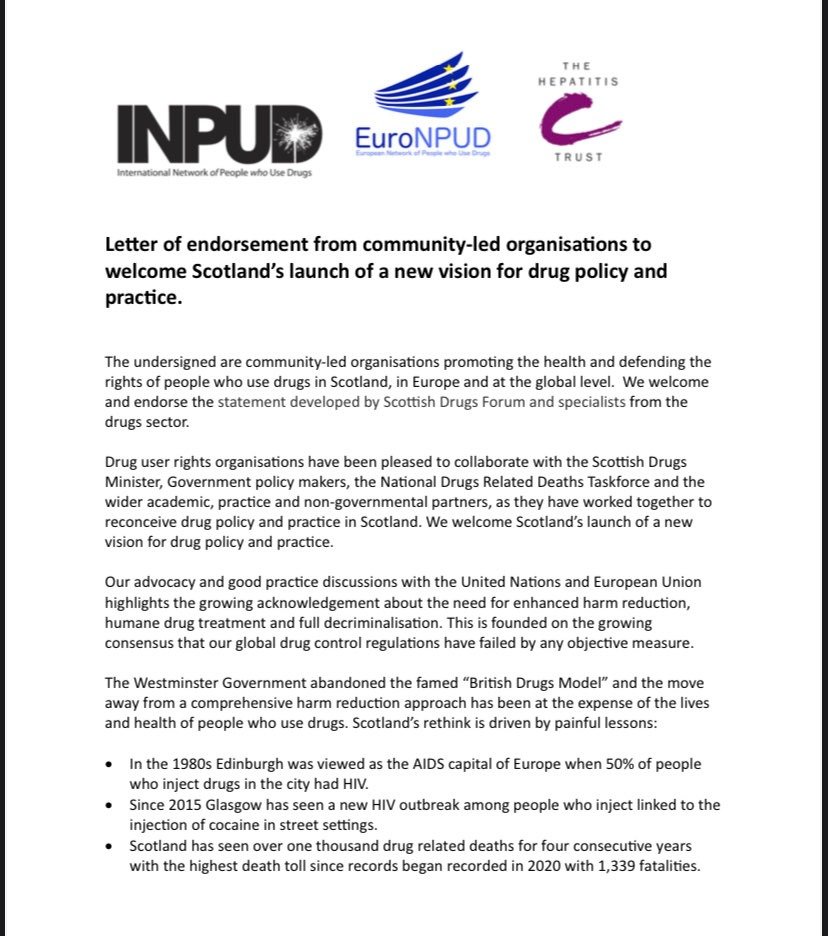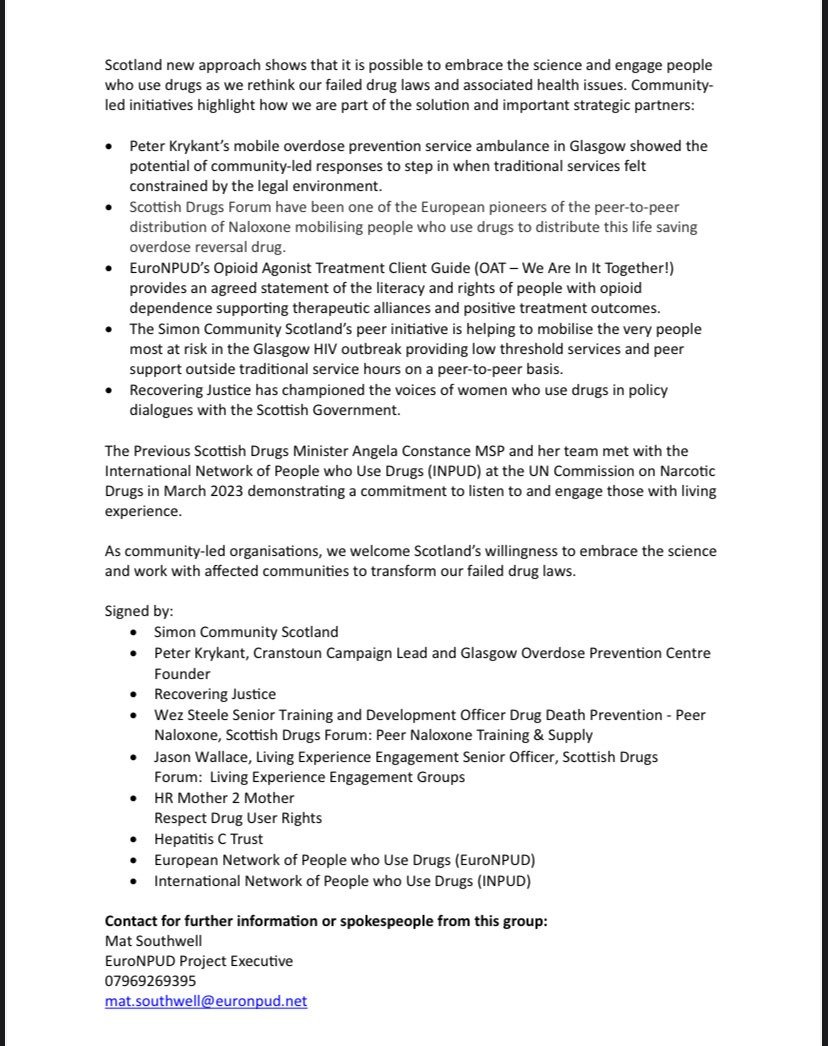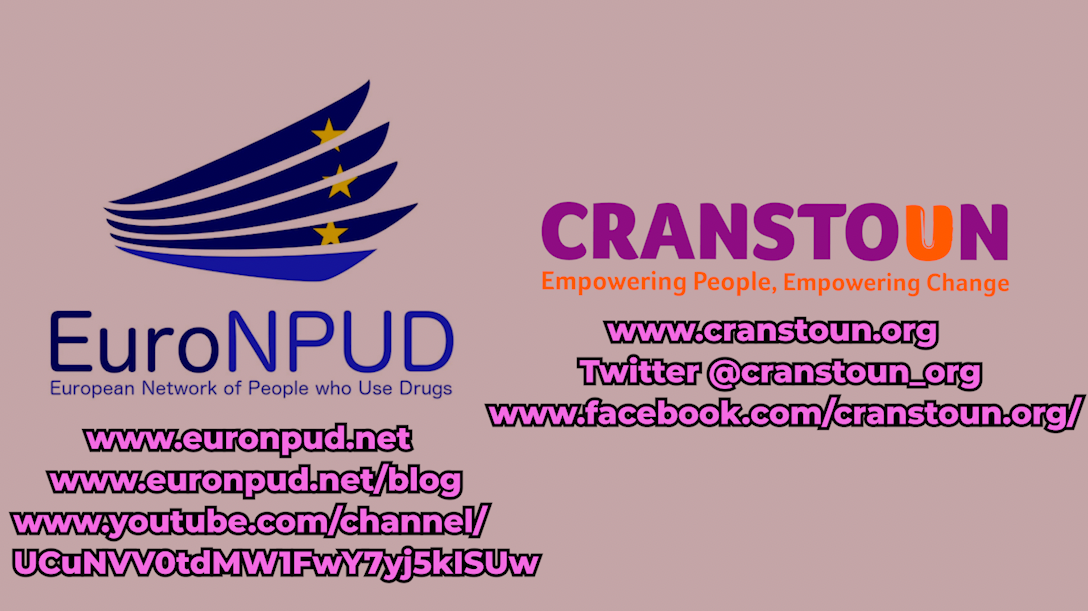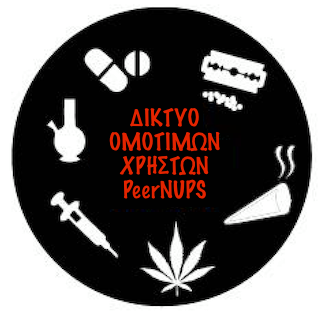In the UK, the grant was received by Respect which is based in Bath. Respect has been running a pilot campaign on peer-to-peer naloxone and secondary needle syringe programmes which has remarkably taken off during COVID-19, and the grant from EuroNPUD was spent on funding payments for peers collaborating on this project. The pivotal role in the project played by friendship suppliers who are drug suppliers that supply drugs on a small scale in order to fund their own drug habit. Initially, the project involved two friendship suppliers giving out needles, syringes and other drug paraphernalia to their customers, but this has later been scaled up to nine friendship suppliers. While friendship suppliers were in charge of distributing needles and syringes, Mat Southwell, the organiser from Respect, delivered naloxone training and distributed naloxone kits to the customers whose drug use indicated they would benefit from this intervention. Besides Mat Southwell, two other drug-using peers from Respect are also in the process of becoming volunteers at local drug service DHI. This will allow the project to move further and reach more drug users. As friendship suppliers identify peers in their network who would benefit from naloxone intervention, DHI volunteers will train them to do the education about naloxone to their customers themselves, after which a DHI volunteer will be called to issue naloxone to every drug user that was given naloxone training by a friendship supplier. The meeting has been conducted about setting this working relationship up, and new people are already being paid for doing this work. The next stage includes setting up a meeting for the friendship suppliers and DHI member of staff and a peer worker from Hepatitis C Trust. All friendship suppliers with be trained in secondary needle and syringe programme, peer-to-peer naloxone and Hepatitis C awareness and elimination. They will also be involved in the guerrilla crack pipe pilot, which will include doing a questionnaire, giving people one or two different crack pipes and promoting avoidance of sharing pipes in order to prevent Hepatitis C and COVID-19 transmissions. The pilot will initially be limited to two weeks, but a purchase of a large volume of new crack pipes with donations is already planned, and the project is set to continue as a six-month pilot. Friendship suppliers will also be involved in Hepatitis C elimination. They will screen their customers who are injecting drug users and who might benefit from Hepatitis C testing. They will also be provided with dry blood spot self-testing kits and offered support in testing customers who are at risk of Hepatitis C transmission, whereas DHI volunteers will then help people who test positive to move on into treatment.
The project in Bath involved the core group of ten drug user activists and peers, interacting with 100 drug users. While the grant was given specifically to Respect to run the pilot, the posters ‘Time for New Normal’ were also branded for three other drug user groups in the UK. In addition to Respect, these included Lancashire Users Forum, Boro Harm Reduction Union and Lambeth Service Users Council.
This project is expected to develop further on a bigger scale, with Public Health England offering funding of £5000 to document the secondary needle and syringe pilot, webinars and five grants of £500 to five other drug user group so that they can learn from the Bath pilot and hopefully implement it themselves. Furthermore, the action of the UK drug user groups in response to COVID-19 resulted in people noticing that harm reduction needs mobilisation and recognising that drug users are the experts who should be active participants in the field of harm reduction, and not merely passive recipients of the services. This has brought positive outcomes; for example, Change Grow Live are now actively supporting peer-led harm reduction and progressive OST, and they have invited Mat Southwell from Respect to make a presentation to their prescribing doctors and nurses in October 2020.
Meaningful action around SDP was also undertaken in other countries. The association ARSU, which is part of CATNPUD organised an event to commemorate the Global Day of Action at La Illeta, the harm reduction centre in Reus. The event was attended by around thirty drug user activists, as well as harm reduction professionals and people from the local neighbourhood. Altogether, sixty people took part in the event. The day consisted of reading a manifesto, the realisation of a live radio program of Radio Liberarsu, live performance of local artist @akila and open mic session aimed at raising awareness of the importance of fighting the stigma attached to people who use drugs. Finally, a human mosaic was built with the slogan 'Support Don’t Punish'. Free breakfast and lunch were provided to the attendees of the event, with posters ’Time for New Normal’ displayed in the office and on the street to emphasise the focus of the day. The event received media coverage on the website of the Catalan Health Department of Catalunya. In the weeks prior to the event, ARSU also took part in the demonstration to support housing for drug users and homeless people, and ARSU’s work at La Illeta and its activism for homeless people was covered in the article published in Tarragona Digital.
Metzineres, a Catalonian project for women who use drugs, organised an outdoor day in the Raval district of Barcelona that sought to strengthen ties with the local community. Metzineres wanted to break the perception that people who use drugs are merely the recipients of services; instead, they aimed to emphasise they are active participants in the community and should not be interpreted as a problem, but as a part of the solution. Metzineres make no distinction between drug users and professionals in their organisation and wanted to transport this ethos among the wider community in their local neighbourhood. They recorded videos of interviews with other members of the neighbourhood in which they explored the impact of their collaborative work. Together with Energy Control, the project in the field of harm reduction associated with recreational drug use which forms part of NGO Association For Well Being And Development, Metzineres also recorded a short video with a poem about the impact of war on drugs. The Day of Action then consisted of showing the videos to the attendees from the neighbourhood, communal lunch, socialising, discussion, and jointly making a graffiti to commemorate the day. The event was a great success, as it offered a platform for meaningful connection and collaboration of about a hundred attendees from a variety of different personal and professional backgrounds.
Društvo AREAL coordinated a gathering and discussion at Metelkova, an autonomous social and cultural centre in Ljubljana in collaboration with Šent, the Slovenian Association for Mental Health. They also distributed posters, T-shirts and badges to promote the SDP campaign. Furthermore, Društvo AREAL members took part in protests against the current right-wing government, raising awareness of the SDP campaign among the protesters and advocating for changes concerning the human rights of people who use drugs. Such engagement allowed Društvo AREAL to build meaningful relationships with progressive left-wing political forces with whom they plan to collaborate in future projects that will focus on increasing the accessibility of services and protection of rights of people who use drugs. Particular matters of concern in Slovenia are lack of naloxone distribution and lack of support services for migrants who use drugs, on both of which Društvo AREAL has completed material work recently and plans to continue doing so in the future.
Due to the exceptional situation caused by the COVID-19 pandemic, some events within the SDP campaign have taken place virtually as such arrangement allowed them to reach a wider audience. ItaNPUD organised an online event, contacted organisations in the harm reduction field in Italy and conducted interviews that focused on psychedelics, drug testing, drug policy, harm reduction and drug user activism. The webinar was organised in collaboration with CASO. In the evening of 26 June, ItaNPUD also engaged in outreach work in Rome. They distributed flyers and posters about ItaNPUD and SDP campaign, provided attendees with non-alcoholic drinks and biscuits and led a discussion about harm reduction. A gathering with the distribution of flyers and debate about drug policy was also organised in Torino. Events were attended by approximately 100 people in total, and posters ‘Time for New Normal’ were displayed at the event in Torino and on various social media.
CASO organised three structured mini-training sessions about overdose and naloxone in Porto. Five members of CASO and 15 drug-using peers took part in the project. CASO also raised awareness about harm reduction and safer drug use in the context of COVID-19 epidemic and displayed ‘Time for New Normal’ posters at the in-person event and on the social media. Additionally, CASO collaborated with ItaNPUD in development and delivery of the webinar where they presented how the Portuguese model is operating during the pandemic and engaged in the discussion on the objectives drug user activists want to reach around COVID-19, such as rapid access to OST and take-home doses for longer periods. CASO also organised a separate SDP day for women and non-binary people, as well as twice-weekly outreach days during which they distributed needles, syringes and condoms to hard-to-reach drug-using peers during the lockdown period. For the future, CASO plans to focus on providing online support and webinars whilst keeping in mind the need to find the balance between in-person and online events. Additionally, they plan to deliver structured naloxone training not only to peers, but also to their families, friends and people in homeless shelters, and they are strongly advocating for all members of outreach teams to carry naloxone and be trained in its usage.
PeerNUPs arranged several events for The Global Day of Action, starting with a gathering in the shelter for homeless drug users in Athens which was attended by peers, residents of the shelter and member organisations of the Greek NGO Platform for Psychoactive Substances, including Diogenes Drug Policy Dialogue, Positive Voice, Centre for Life, Prometheus and Praksis. At the event in the shelter, PeerNUPs had a long panel with SDP signs, and they gave out T-shirts, badges and flyers about harm reduction advice in relation to COVID-19 in Greek and English. They also issued flyers on methamphetamine harm reduction developed from a Canadian resource. Methamphetamine use has recently increased in Greece, especially among women. As people were coming and going, it was difficult to establish the number of people who attended the event at the shelter in total. However, the event was overall busy, and the feedback from the attendees was very positive. The event also received media coverage, with one of Greek TV channels attending the event and doing interviews with the participants. The event at the shelter finished around 2pm and shortly after, two members of PeerNUPs had an appointment with Prime Minister Kyriakos Mitsotakis and George Stamatis, Secretary-General for Social Solidarity and Fight against Poverty where they discussed the health and social needs of drug users. Attendees at this meeting also included the president and vice-president of Kethea, the rehabilitation and social reintegration network in Greece. In the evening, PeerNUPs organised another gathering in the Municipal Market of Kypseli which focused on homelessness in the world of drug use. The speakers included Niki Voudouri, Fotini Leombila, Konstantinos Kokkolis, Tassos Smetopoulos, Alekos Anastasiou, Nikos Fitsialos, Marios Atzemis, Daphne Chronopoulou and Christos Anastasiou. The event attracted a diverse audience of peers and members of the public who acquired up-to-date knowledge about the homelessness and drug use from insightful contributions from the speakers.
Multiple country action within the SDP campaign has this year continued its tradition and attracted an increasing number of activists and local partners in numerous cities around Europe. EuroNPUD member groups utilised the received grants in a variety of different and innovative ways, thoughtfully responding to the local situation and effectively addressing the challenges associated with COVID-19. With their activities, member groups raised awareness about harm reduction among the public, attracted media attention and built relationships with the local community, politicians and partnership organisations. They are determined to continue with such activities in the future, both in their everyday practice and around specific events, such as future SDP and International Overdose Awareness Days.

























